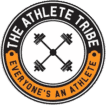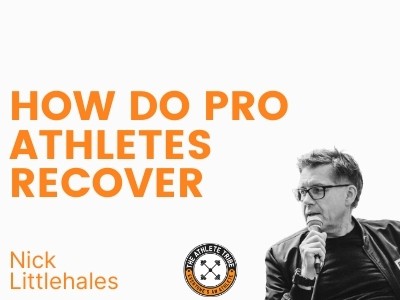Performance Recovery
With so many of us leading busy and hectic lives, we like to believe that less sleep means more time to be productive, but at The Athlete Tribe, we know that couldn’t be further from the truth.
In our recent chat with world-renowned sleep coach Nick Littlehales, he highlighted the need to think of sleep as a vital performance criterion. We were able to learn how professional athletes recover, and how these methods could be used.
“We don’t look at it like the other health pillars in any depth at all. So, I think we’ve just been getting away with a random approach,” said Littlehales, who has worked with elite sports teams, including Manchester United and Team Sky’s Tour de France squad, as well as top corporations.
What has happened during Covid?
Since the COVID-19 crisis, Littlehales believes people are starting to realise the significance of quality sleep and recovery:
“Over the last decade into the last five years, our sort of 24/7 world continues to create that sort of social experiment, that behavioural change. And I think that the pandemic just reminds everybody that we’ve all got challenges. Some of them are out of our control. Some of them we don’t even know are coming around the corner. And I think your ability to recover naturally, i.e. in any 24-hour period like sleeping, is far more critical to our health and well-being than we ever realised before.”
How can we improve our recovery?
Littlehales says improving performance through sleep can be achieved through his technique, which he developed while working with British Cycling in 2008.
“It’s seven little steps and we call them Key Sleep Recovery Indicators. It’s called the R90 Technique, because it’s about recovery in 90-minute cycles, trying to change the emphasis on getting eight hours at night in one monophasic block.”
According to Littlehales, a sleep routine is vital with five 90-minute sleep cycles within a 24-hour period being optimal. However, each person has their own chronotype; being either a morning person or a night owl.
“If there are two human beings living outside all the time like we used to do on our journey on this planet, then the circadian rhythms of the day, which is the sun going around the planet, which creates sunrise, which brings daylight, the energy wave blue light, that triggers a hormone called serotonin. The serotonin tells the brain to suppress everything, to make you active,” he explains.
“As that light disappears, as the sun sets, a different process starts to happen and that is diminished light and dark starts to create melatonin and melatonin tells the brain to suppress things and take you towards a period of recovery. So two people outside, if one is an AM-er, a morning type, then as soon as that sun starts to even get near the horizon, then the AM-er starts to trigger that serotonin. So they are up early, active, hungry, bang. The PM-er is about a two-hour phase delay behind that.
So, you don’t start producing it that quickly, so that’s one of the first steps in your own particular profile. You can ignore it, you can camouflage it, you can overstimulate yourself, do all of those things. But you should sit down and think if I had complete control, what would be my most natural wake time?”https://www.youtube.com/watch?v=iz1O86WT7Yo
Is there any difference between an athlete and cognitive athlete?
Whether you’re an elite athlete or a successful business executive, punishing work and travel schedules play havoc with your performance, no matter your chronotype.
That’s why controlled recovery periods, i.e. naps, are so important.
In a corporate setting, a 30-minute afternoon nap would be ideal. However, Littlehales admits it can be hard to get businesses on board.
“There are types of businesses that would not look at this idea of controlled recovery periods in a favourable way for any business that’s a global business, that’s a 24/7 business. But they have to realise that their workforce – and workforce is productivity – is under pressure,” says Littlehales.
What can leaders do in the work environment to enhance recovery?
“They have to think about what that person is doing away from the work environment far more than what they’re doing inside the work environment. They need to start to look at it more as an overall approach to that individual and getting the best out of them. It’s like anything if you try something and suddenly the employee is more productive, they’re happier, they’re absent less, they’re producing much better work quicker and faster. And why is that? It’s because you’ve released them as a human being.”
Some corporations might think that staff would start to take advantage of such an approach, but Littlehales promises that’s not the case.
“Most people in a more recovered natural way feel as though they can be more productive and want to be more productive. If they’re under pressure from fatigue, they don’t want to be productive. They are trying to find excuses. So, it’s kind of like that mindset of if you reveal the individual and help them and give them an environment that they can really be productive in, they will be productive. If you create a situation where you’re making it hard for them every day, but not really realising it, then you’re not going to get the productivity, you’re not going to get the loyalty, you’re not going to get the happiness.”
For more information about Nick Littlehales and his R90 Technique, visit www.sportsleepcoach.com.
We’d like to take this opportunity to thank Nick for joining us at The Athlete Tribe. You can listen and watch the full conversation on our podcast and YouTube.
Thanks for taking the time to read the insight.
Hope your performance is improving, if not drop us a message here to start the conversation.

